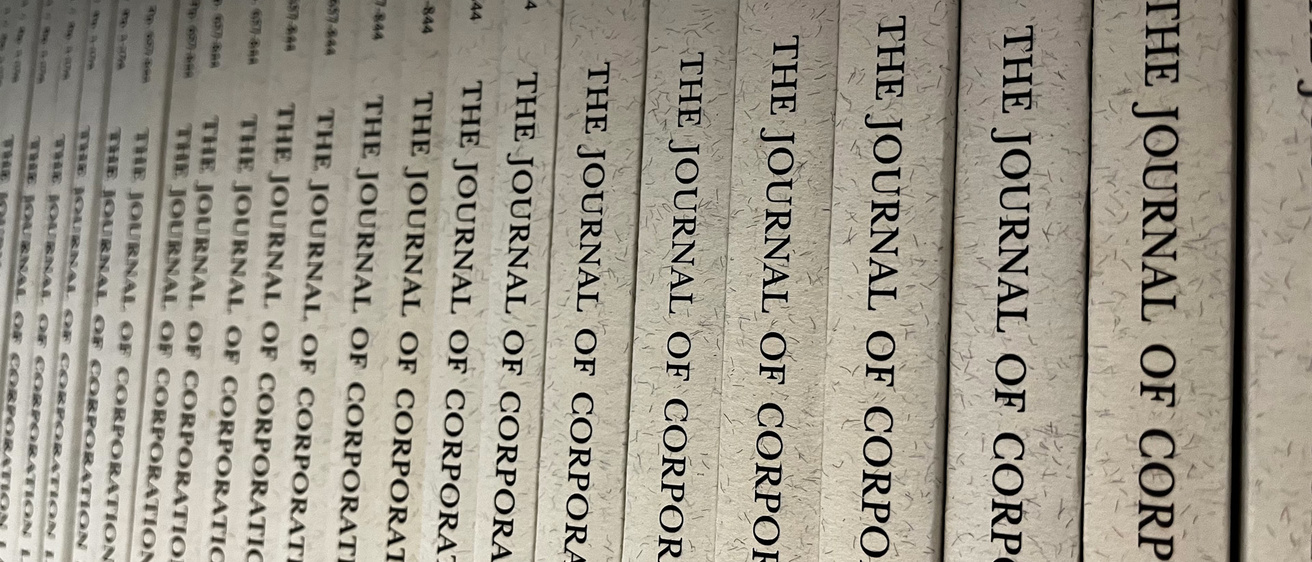Secondary-Default Remedies: Should Harshness Limit Enforcement?
This Article examines a critical but largely unexplored issue in contract law: whether secondary defaults—that is, relatively minor or technical defaults not involving debt repayment—should justify enforcing severe contractual remedies. In the context of lending, this issue concerns whether those types of defaults should justify terminating financing commitments, accelerating the maturity of outstanding debt, and foreclosing on collateral, any of which can cause a firm’s failure. Although this issue arises constantly and its resolution can be critical to a firm’s survival, judges and lawyers lack clear answers. This Article analyzes and seeks to provide answers both under existing law and from a normative standpoint. It also investigates meaningful alternative secondary-default remedies— some that could be instituted by courts, others recommended to parties in contract design— that would not impose undue hardships on borrowers and third parties, including the public.
The Legitimation of Shareholder Primacy
We are living in a polarized era, and corporate governance is no exception. With controversies raging over “environmental, social, governance,” (ESG) investing, diversity, equity and inclusion initiatives, climate change as an investment concern, and even Elon Musk’s pay package at Tesla, it seems as though corporate governance has never been so starkly divided along partisan lines.
The divisions have threatened to spill over to Delaware, the preferred jurisdiction for incorporation in the United States. Several high profile cases—including those involving Elon Musk—have called Delaware’s neutrality into question. Commenters have argued that Delaware’s newly politicized approach threatens to splinter the corporate governance universe, driving corporations to other states that are more reliable (or that follow different corporations’ preferred politics).
This Article argues that, in some ways, the critics are correct: Delaware law is on a path toward politicization. But it is not because of any particular bias of its judges or its law; to the contrary, the pressures toward politicization are inherent in any system that purports to guide how vast aggregations of capital will be deployed. What is unique about the current moment is that the trends toward politicization result from tensions inherent in shareholder primacy. Shareholder primacy was conceived, in large part, as a compromise to keep politics out of business management; what the modern controversies reveal is the futility of that effort.
Against Corporate Oversight
Corporate oversight is trending. Developed by courts during a predigital era, the duty of oversight is meant to protect shareholders against corporate malfeasance, while still giving directors enough leeway to take marketplace risks. Just as the law imposes a special fiduciary duty on those who are given trust, corporate law imposes a special fiduciary duty on directors in confronting risks to corporations. Over the years, this principle has garnered remarkably broad support among advocates for greater corporate accountability.
This Article seeks to disrupt the consensus for the standard of assessment of the duty of oversight by identifying lurking tensions, as well as reasons to doubt a uniform conception of risk in oversight liability. Although some harms to corporations could have been minimized if directors had taken more seriously their responsibility to actively oversee corporate affairs, the emergence of cybersecurity as a central corporate concern suggests that directors are overly cautious with cyber risks and are motivated by the fear of liability. This Article questions whether the current duty of oversight is adequate for the problem of assessing corporate decision making in hindsight and questions whether the standard has been reinvigorated with directors’ assessment of emerging cybersecurity risks as claimed by some scholars. In so doing, this Article calls attention to the costs of reinvigorating the duty of oversight in U.S. corporate governance—a trend that effectively abrogates the business judgment rule, which would not be consistent with the scale and scope of modern cybersecurity or practical for implementation towards other disruption risks.
The evolution of the duty of oversight invites an enervating complacency towards assigning personal liability to directors for business performance and risk taking and points to a premature abandonment of more robust visions of the business judgment rule. Current iterations of the oversight duty create risk aversion among directors, while failing to incentivize effective corporate protections in an era of cybersecurity. The business judgment rule better strikes the balance between technological risk-taking, corporate safety, and director liability. This Article takes a skeptical view of the current conception of the duty of oversight and argues for a reinvigoration of the business judgment rule as a better theory of liability to balance risk taking and decision making made with good faith and in the best interests of the corporation.
“It ain’t what you don’t know that gets you into trouble. It’s what you know for sure that just ain’t so.”
- attributed to Mark Twain
“There are two types of companies: those who have been hacked, and those who don’t yet know they have been hacked.”
- John Chambers (former CEO of Cisco Systems)
